7 start with I start with I
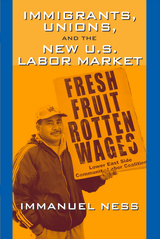
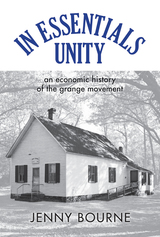
The Patrons of Husbandry—or the Grange—is the longest-lived US agricultural society and, since its founding shortly after the Civil War, has had immeasurable influence on social change as enacted by ordinary Americans. The Grange sought to relieve the struggles of small farmers by encouraging collaboration. Pathbreaking for its inclusion of women, the Grange is also well known for its association with Gilded Age laws aimed at curbing the monopoly power of railroads.
In Essentials, Unity takes as its focus Grange founder Oliver Kelley and his home organization in Minnesota. Jenny Bourne draws upon numerous historical records to present a lively picture of a fraternal organization devoted to improving the lot of farmers but whose legacies extend far beyond agriculture. From struggles over minimum wage, birth control, and environmental regulation to the conflicts surrounding the Affordable Care Act, and from lunch-counter sit-ins to Occupy Wall Street, the Grange has shaped the very notion of collective action and how it is deployed even today. As this compact book so effectively illustrates, the history of the Patrons of Husbandry exposes the classic tension between the desires for achieving overall economic success and determining how the spoils are split.

"Fink places American labor history in the broader context of American political historiography better than any other historian I can think of." -- James R. Barrett, author of Work and Community in the Jungle: Chicago's Packinghouse Workers, 1894-1922
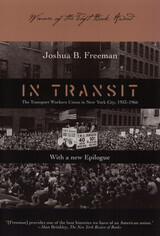
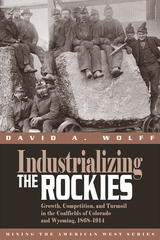
In Industrializing the Rockies, David A. Wolff places these deadly conflicts and strikes in the context of the Western coal industry from its inception in 1868 to the age of maturity in the early twentieth century. The result is the first book-length study of the emergence of coalfield labor relations and a general overview of the role of coal mining in the American West.
Wolff examines the coal companies and the owners' initial motivations for investment and how these motivations changed over time. He documents the move from speculation to stability in the commodities market, and how this was reflected in the development of companies and company towns.
Industrializing the Rockies also examines the workers and their workplaces: how the miners and laborers struggled to maintain mining as a craft and how the workforce changed, ethnically and racially, eventually leading to the emergence of a strong national union. Wolff shines light on the business of coal mining detailing the market and economic forces that influenced companies and deeply affected the lives of the workers.

The authors offer a unique portrait of the social upheaval, why it is happening and where it may take the country. Following the fall of reformism, the rise of Ahmadinejad and the recent outbursts of ethnic violence, this book provides rare insights into the inner contradictions of the Islamic Republic.
The second part of the book deals with the international issues facing Iran - in particular the nuclear question, Iran's oil reserves and the serious threat of invasion. It is a sobering account of the realities of life in Iran, and the threat that war poses to the democratic aspirations of the Iranian people.
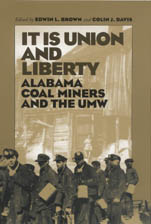
This history of Alabama's coal miners documents the struggle not
only between labor and management but also between interracial unionism
and white supremacy.
Much of Alabama's labor history is written in its coal
fields. This book records the critical contribution that District 20 of
the United Mine Workers of America played in the state's labor movement
through its strong stands on such issues as child labor, public education,
and inter-racial unions.
Standing at the cutting edge of social and political
history, these essays cover five periods over a century of union activity:
the emergence of a militant labor force during mining's formative years;
the World War I era, when mine operators tried to divide black and white
labor; the increasing role of the state in labor relations during the interwar
years; rapid changes in the union between 1942 and 1975; and the 1977-79
strike, the largest in the United Mine Workers' history.
Through historic
photographs and depictions of living and working conditions, contributors
Edwin L. Brown, Colin J. Davis, Daniel Letwin, Brian M. Kelly, Peter Alexander,
Glenn Feldman, and Robert H. Woodrum portray the world that miners, both
black and white, made. In a state where racial segregation was the norm,
even the earliest District 20 contract proposals demanded equal pay for
equal work regardless of color. It Is Union and Liberty shows that the
UMW in Alabama stands apart from perceptions of southern trade unionism
as exclusionary and racially fragmented. It sheds light on an important
segment of the state's labor history and is a testament to District 20
on its centennial celebration.
Edwin Brown is Associate
Professor in the Center for Labor Education and Research and Colin Davis is Associate Professor in the Department of History, both at
the University of Alabama at Birmingham.
READERS
Browse our collection.
PUBLISHERS
See BiblioVault's publisher services.
STUDENT SERVICES
Files for college accessibility offices.
UChicago Accessibility Resources
home | accessibility | search | about | contact us
BiblioVault ® 2001 - 2025
The University of Chicago Press









